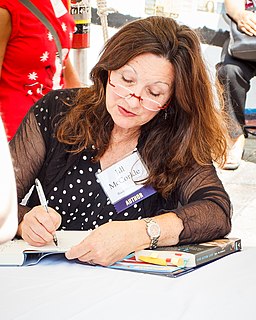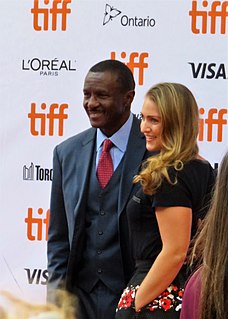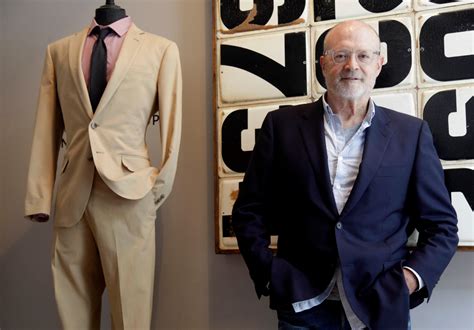A Quote by Jane Smiley
A novelist is on the cusp between someone who knows everything and someone who knows nothing.
Related Quotes
Someone real," I hear myself saying. "Someone who never has to pretend, and who I never have to pretend around. Someone who's smart, but knows how to laugh at himself. Someone who would listen to a symphony and start to cry, because he understands music can be too big for words. Someone who knows me better than I know myself. Someone I want to talk to first thing in the morning and last thing at night. Someone I feel like I've known my whole life, even if I haven't.
Hollywood is so small that everyone has either worked with someone or knows someone who knows someone and so it was kind of easy and fun. And I think there's something exciting about being, like, "Hey! Welcome to the set!" and making everyone feel welcome, and making it fun, 'cause everybody knows what it's like to be the new kid.
I think the contrast between these two in the professional world of cinema mattered to me. One who has reached the ultimate point of being a star, who knows how to do everything very well, facing another person who would throughout the making of the film transfer his anxiety to both of us, to me and to Juliette, as to whether or not he would be capable of fulfilling his role. This in itself created a challenge that was actually very good for me, since I hadn't ever counterposed two such performers before, creating that challenge between someone who knows their part and someone who doesn't.
Men are four;
He who knows and knows not that he knows. He is asleep; wake him.
He who knows not and knows not that he knows not. He is a fool; shun him.
He who knows not and knows that he knows not. He is a child; teach him.
He who knows and knows that he knows. He is a king; follow him.
The heights by great men reached and kept
Were not attained by sudden flight,
But they, while their companions slept,
Were toiling upward in the night.
There are four types of men in this world: 1. The man who knows, and knows that he knows; he is wise, so consult him. 2. The man who knows, but doesn't know that he knows; help him not forget what he knows. 3. The man who knows not, and knows that he knows not; teach him. 4. Finally, there is the man who knows not but pretends that he knows; he is a fool, so avoid him.
A man’s ignorance sometimes is not only useful, but beautiful - while his knowledge, so called, is oftentimes worse than useless, besides being ugly. Which is the best man to deal with - he who knows nothing about a subject, and, what is extremely rare, knows that he knows nothing, or he who really knows something about it, but thinks that he knows all?







































